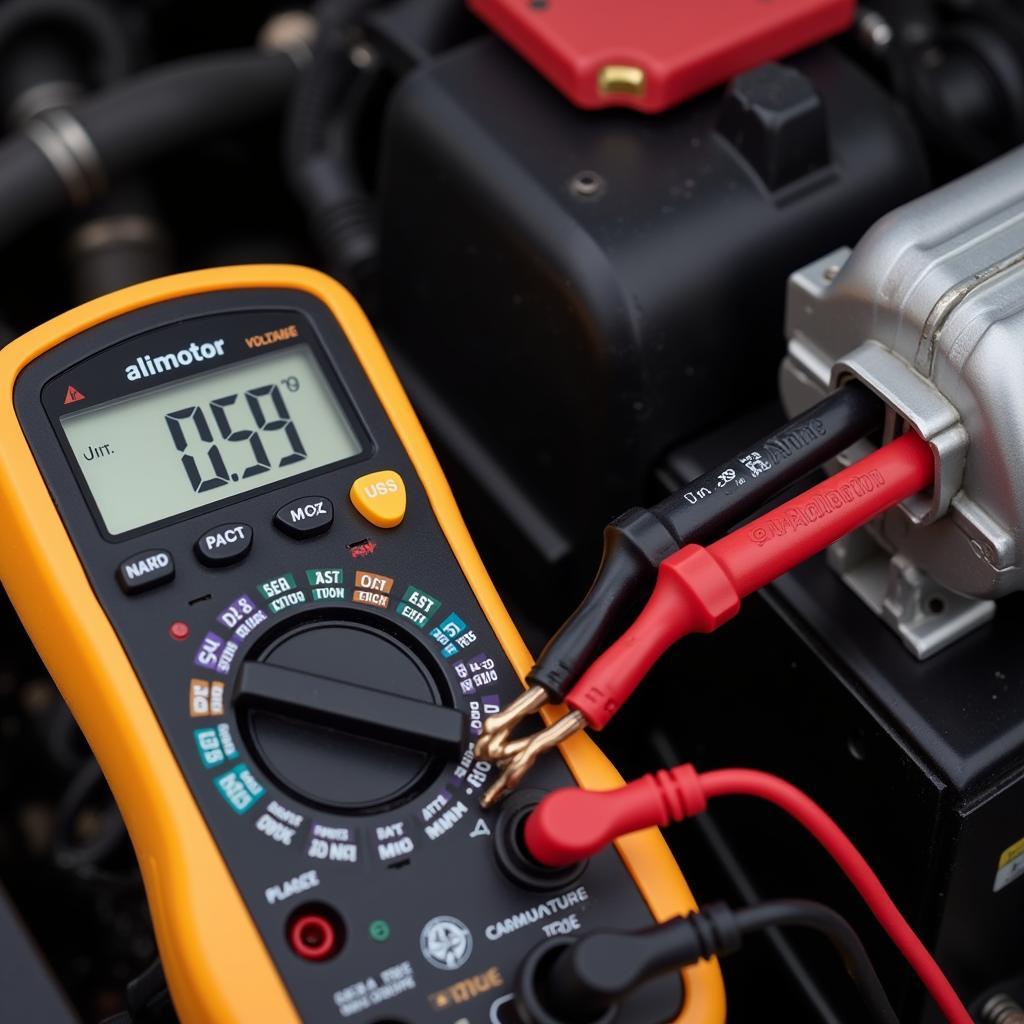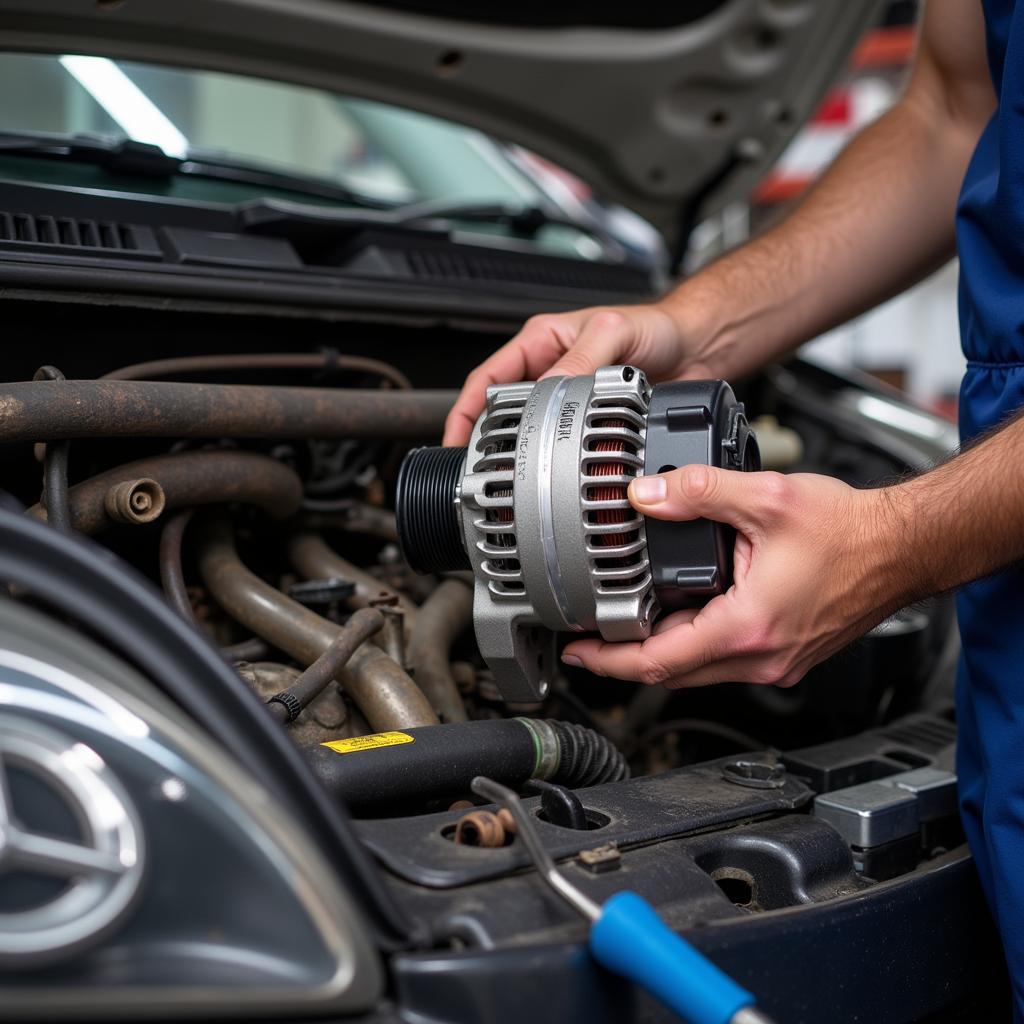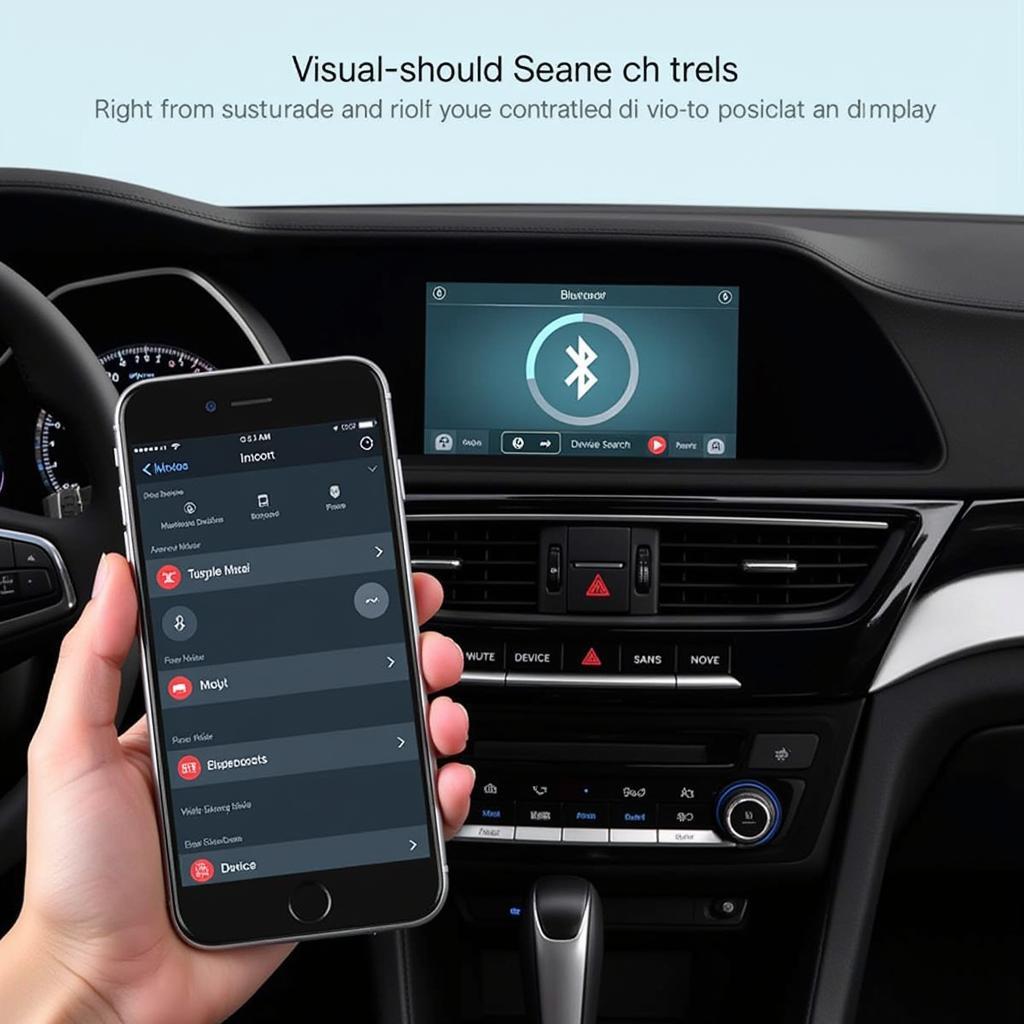A bad battery alternator can leave you stranded. This comprehensive guide helps you diagnose, troubleshoot, and fix alternator problems, ensuring you’re back on the road quickly and safely. We’ll explore the signs of a failing alternator, explain the testing procedures, and offer solutions, from DIY fixes to professional repairs. We’ll even delve into remote software diagnostics and programming.
The heart of your vehicle’s electrical system, the alternator charges the battery and powers electrical components while the engine is running. A faulty alternator means your battery won’t charge, leading to a dead battery and a vehicle that won’t start. Recognizing the signs of a failing alternator is crucial to avoid unexpected breakdowns.
Recognizing a Bad Battery Alternator
Several telltale signs indicate a potential problem with your alternator. These include:
- Dimming headlights: The alternator powers your headlights. If they dim, especially when idling or at low speeds, it could signal a failing alternator.
- Warning light: The battery or charging system warning light on your dashboard is often the first sign of a bad battery alternator.
- Strange noises: Whining or grinding noises from the engine compartment, particularly near the alternator, may indicate bearing wear or other internal problems.
- Electrical issues: Malfunctioning power windows, radio, or other electrical accessories can also be attributed to a struggling alternator.
- Dead battery: A consistently dead battery, even after a recent jump-start, often points towards a faulty alternator.
 Testing Car Alternator with Multimeter
Testing Car Alternator with Multimeter
If you experience any of these symptoms, it’s essential to test your alternator.
Testing Your Alternator
You can test your alternator using a multimeter, following these steps:
- Start your car.
- Connect the multimeter’s red probe to the positive battery terminal and the black probe to the negative terminal.
- With the engine running, the reading should be between 13.5 and 14.5 volts. A lower reading indicates a potential alternator problem.
best bluetooth adapter for car radio
Solutions for a Bad Battery Alternator: DIY vs. Professional
Once you’ve confirmed a bad alternator, you have a few options:
- DIY Replacement: If you’re mechanically inclined, you can replace the alternator yourself. However, this requires some technical knowledge and tools.
- Professional Repair: Taking your car to a qualified mechanic is the safest and most reliable option for alternator replacement. They have the expertise and equipment to diagnose and fix the problem correctly.
wireless bluetooth adapter for car radio
Remote Diagnostics and Software Solutions
In some cases, alternator issues can be related to software or control module problems. This is where remote diagnostics and software solutions come in. A specialist can remotely access your vehicle’s computer system, diagnose the issue, and even reprogram certain modules to resolve the problem.
“Remote diagnostics can be a real time-saver, especially for intermittent issues that are difficult to replicate in a shop,” says John Smith, Senior Automotive Electrical Engineer at Acme Auto Solutions.
 Car Alternator Replacement
Car Alternator Replacement
usb bluetooth adapter for car radio
How Does a Bad Battery Alternator Affect Other Components?
A malfunctioning alternator can strain the battery, leading to premature failure. It can also cause electrical system instability, affecting various components, including the ignition system, lights, and accessories.
“A bad alternator can have a cascading effect on your vehicle’s electrical system, ultimately leading to costly repairs,” warns Jane Doe, Lead Technician at Reliable Auto Repair.
bluetooth adapter for car radio with cd
Conclusion
A bad battery alternator can cause significant problems, from a dead battery to complete electrical system failure. By recognizing the signs, testing the alternator, and choosing the right solution, you can prevent unexpected breakdowns and keep your vehicle running smoothly. Don’t wait until you’re stranded—address alternator issues promptly.
bluetooth adaptor for car radio
FAQ
- How long does an alternator typically last? Alternators usually last between 7 and 10 years, depending on usage and driving conditions.
- Can I drive with a bad alternator? You can drive for a short distance, relying on the battery’s reserve power, but it’s not recommended.
- How much does it cost to replace an alternator? The cost varies depending on the make and model of your car, but expect to pay between $300 and $800.
- Can a bad battery cause alternator problems? A bad battery can sometimes put extra strain on the alternator, potentially shortening its lifespan.
- How can I prevent alternator problems? Regular vehicle maintenance, including battery and electrical system checks, can help prevent alternator issues.
- Are there rebuilt alternators available? Yes, rebuilt alternators are a cost-effective alternative to new ones.
- Can extreme temperatures affect the alternator’s performance? Extreme heat or cold can impact the alternator’s lifespan and performance.


